In October, the focus of our Friendship Project turns to the very timely subject of Difficult Conversations. Some of us charge head first into these hard discussions we may need to have with a colleague, a family member, or a friend, while some of us run as far and fast from them as we can. There’s an art to it, one that we’ll be talking about in the coming weeks.
As part of that conversation, we invite you to join us for a Pod Club discussion on The Art of Peace, Krista Tippett’s interview with John Paul Lederach, senior fellow at Humanity United. Tippett introduces the interview this way:
This hour, we take on the generic and strangely divisive notion of “peace;” we infuse it with unpredictable images from a wise and adventurous life in conflict transformation around the globe. I’ve been following the Mennonite activist John Paul Lederach’s work for years. And we hear his stories this hour, which you have never heard in the news — from places like Colombia, Nepal, Tajikistan, and Northern Ireland. We learn what really happens when people transcend violence while living in it — and so find the moral imagination to live beyond it. John Paul Lederach says, for example, that the key to enduring change is not mass numbers of people but a quality of relationship between unlikely people.
Tippett then remarks at one point in the interview,
You have talked about… this phrase that we often use, unspeakable violence, and in fact that the ways human beings transcend or give voice to what they need to give voice to sometimes is not through words and process but through poetry and music…Somebody might hear that and say, ‘Oh, how sweet,’ but you see these things as essential to survival…
Regarding poetry, which is then discussed in multiple ways, Lederach says,
Quite often when people say something, and we all have a kind of ‘aha’ moment around what was said…and it comes out very close to, if not in the form of, haiku…
Listen to The Art of Peace and plan to join us on October 3 to talk about it further.
(Note, this will be a patron-only conversation).
***
Then, we’ll be hosting a book club discussion on the book Difficult Conversations by Douglas Stone, Bruce Patton and Sheila Heen of the Harvard Negotiation Project. The publishers say,
…discomfort and awkwardness are not limited to topics on the editorial page. Anytime we feel vulnerable or our self-esteem is implicated, when the issues at stake are important and the outcome uncertain, when we care deeply about what is being discussed or about the people with whom we are discussing it, there is potential for us to experience conversation as difficult.
Whether we’re dealing with an underperforming employee, disagreeing with our spouse about money or child-rearing, negotiation with a difficult client, or simply saying “no” or “I’m sorry” or “I love you,” we attempt or avoid difficult conversations every day. No matter how competent we are, we all have conversations that cause anxiety and frustration. Difficult Conversations walks you through a step-by-step approach for how to have your toughest conversations with less stress and more success.
This conversation will also be available to Tweetspeak patrons only. If you’re not yet a patron, consider joining us in support of the good things this community brings to you (and the world), and be a part of a fascinating and helpful upcoming conversation.
Reading Schedule:
October 11: Chapters 1-4
October 18: Chapters 5-7
October 25: Chapters 8-12
Browse more Book Club
Browse more Pod Club
Photo by Troposa1, Creative Commons license via Flickr. Post by Will Willigham.
For Social Media
- Earth Song Poem Featured on The Slowdown!—Birds in Home Depot - February 7, 2023
- The Rapping in the Attic—Happy Holidays Fun Video! - December 21, 2022
- Video: Earth Song: A Nature Poems Experience—Enchanting! - December 6, 2022

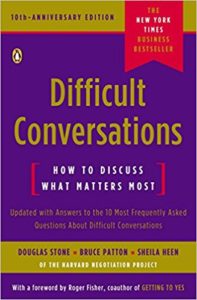
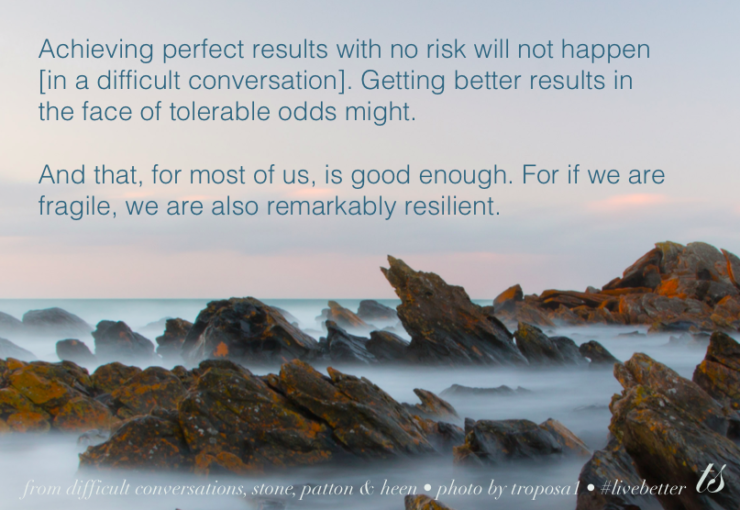
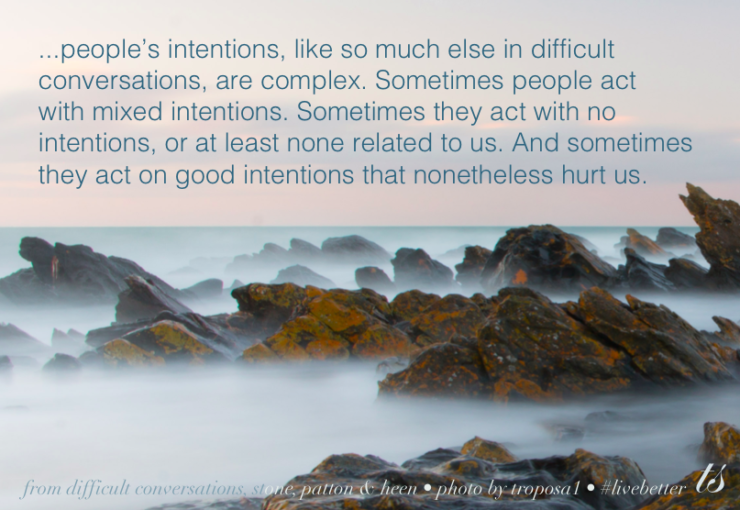
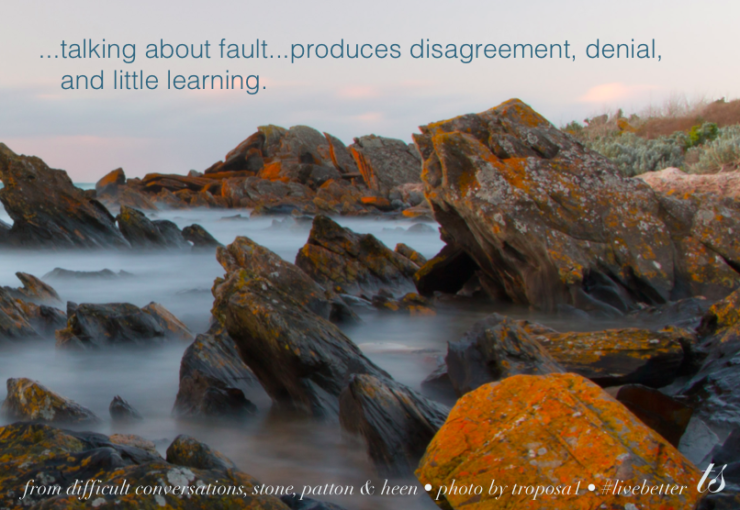
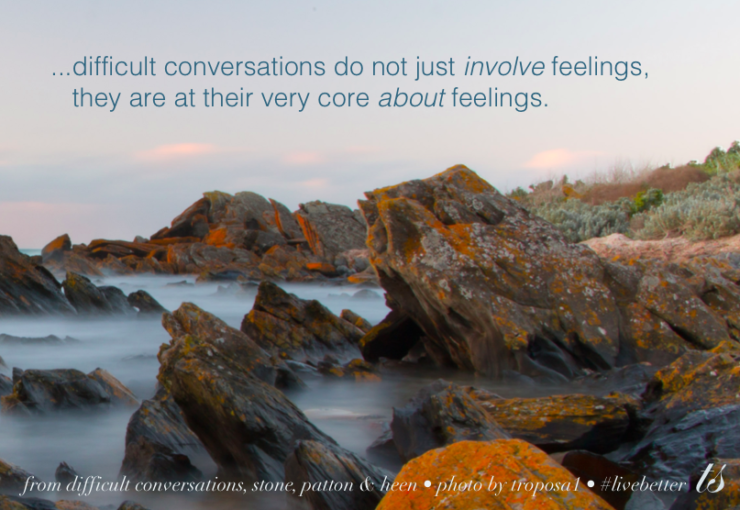
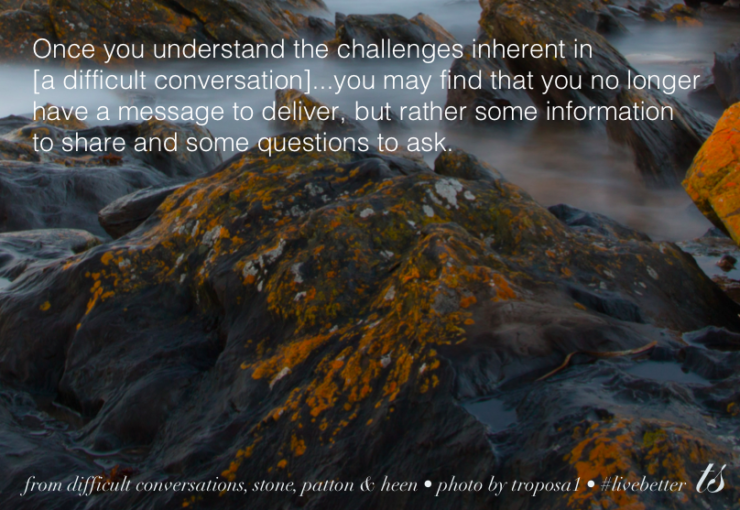
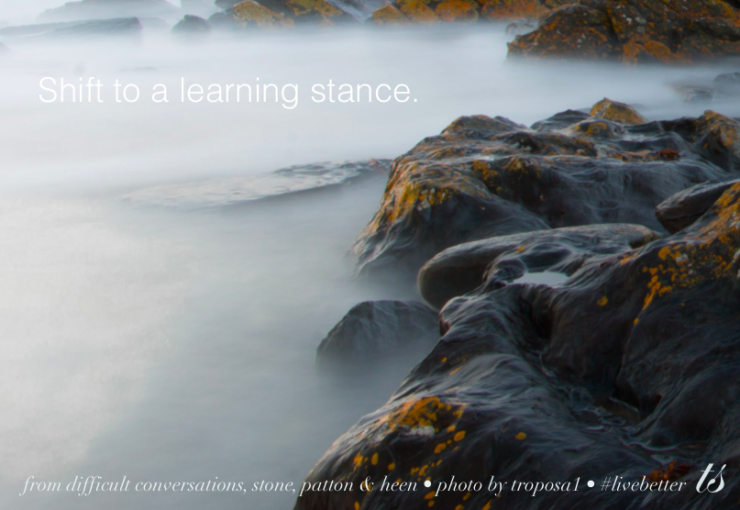
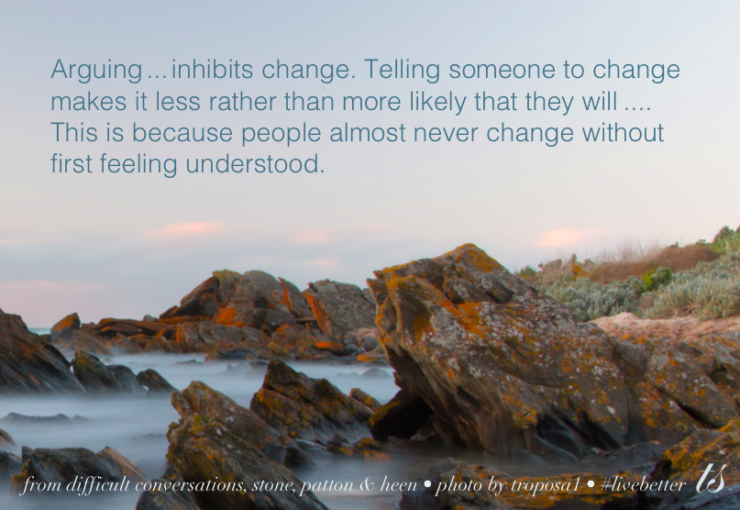
[…] John Paul Lederach has found that poetry often comes to him in the midst of conversation, in the form of a haiku. Lederach is a senior fellow at Humanity United, and a “peacemaker and poet.” He’s traveled the world working with varied groups of individuals in 25 countries exploring unique solutions to conflict. […]